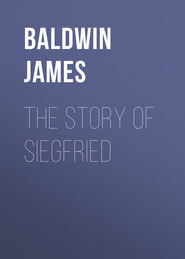По всем вопросам обращайтесь на: info@litportal.ru
(©) 2003-2024.
✖
Four Great Americans: Washington, Franklin, Webster, Lincoln
Настройки чтения
Размер шрифта
Высота строк
Поля
He knew that if his father carried out this plan, it would cost a great deal of money; and if this money should be spent for him, then the rest of the family would have to deny themselves of many comforts which they might otherwise have.
"Oh, never mind that, Dan," said his brother Ezekiel. "We are never so happy as when we are doing something for you. And we know that you will do something for us, some time."
And so the boy spent the winter in Boscawen with Dr. Wood. He learned everything very easily, but he was not as close a student as he had been at Exeter.
He was very fond of sport. He liked to go fishing. And sometimes, when the weather was fine, his studies were sadly neglected.
There was a circulating library in Boscawen, and Daniel read every book that was in it. Sometimes he slighted his Latin for the sake of giving more time to such reading.
One of the books in the library was Don Quixote. Daniel thought it the most wonderful story in existence. He afterwards said:
"I began to read it, and it is literally true that I never closed my eyes until I had finished it, so great was the power of this extraordinary book on my imagination."
But it was so easy for the boy to learn, that he made very rapid progress in all his studies. In less than a year, Dr. Wood declared that he was ready for college.
He was then fifteen years old. He had a pretty thorough knowledge of arithmetic; but he had never studied algebra or geometry. In Latin he had read four of Cicero's orations, and six books of Virgil's Aeneid. He knew something of the elements of Greek grammar, and had read a portion of the Greek Testament.
Nowadays, a young man could hardly enter even a third-rate college without a better preparation than that. But colleges are much more thorough than they were a hundred years ago.
* * * * *
VII.—AT DARTMOUTH COLLEGE
Dartmouth College is at Hanover, New Hampshire. It is one of the oldest colleges in America and among its students have been many of the foremost men of New England.
It was in the fall of 1797, that Daniel Webster entered this college.
He was then a tall, slender youth, with high cheek bones and a swarthy skin.
The professors soon saw that he was no common lad. They said to one another, "This young Webster will one day be a greater man than any of us."
And young Webster was well-behaved and studious at college. He was as fond of sport as any of the students, but he never gave himself up to boyish pranks.
He was punctual and regular in all his classes. He was as great a reader as ever.
He could learn anything that he tried. No other young man had a broader knowledge of things than he.
And yet he did not make his mark as a student in the prescribed branches of study. He could not confine himself to the narrow routine of the college course.
He did not, as at Exeter, push his way quickly to the head of his class.
He won no prizes.
"But he minded his own business," said one of the professors. "As steady as the sun, he pursued, with intense application, the great object for which he came to college."
Soon everybody began to appreciate his scholarship. Everybody admired him for his manliness and good common sense.
"He was looked upon as being so far in advance of any one else, that no other student of his class was ever spoken of as second to him."
He very soon lost that bashfulness which had troubled him so much at Exeter. It was no task now for him to stand up and declaim before the professors and students.
In a short time he became known as the best writer and speaker in the college. Indeed, he loved to speak; and the other students were always pleased to listen to him.
One of his classmates tells us how he prepared his speeches. He says: "It was Webster's custom to arrange his thoughts in his mind while he was in his room, or while he was walking alone. Then he would put them upon paper just before the exercise was to be called for.
"If he was to speak at two o'clock, he would often begin to write after dinner; and when the bell rang he would fold his paper, put it in his pocket, go in, and speak with great ease.
"In his movements he was slow and deliberate, except when his feelings were aroused. Then his whole soul would kindle into a flame."
In the year 1800, he was chosen to deliver the Fourth of July address to the students of the college and the citizens of the town. He was then eighteen years old.
The speech was a long one. It was full of the love of country. Its tone throughout was earnest and thoughtful.
But in its style it was overdone; it was full of pretentious expressions; it lacked the simplicity and good common sense that should mark all public addresses.
And yet, as the speech of so young a man, it was a very able effort. People said that it was the promise of much greater things. And they were right.
In the summer of 1801, Daniel graduated. But he took no honors. He was not even present at the Commencement.
His friends were grieved that he had not been chosen to deliver the valedictory address. Perhaps he also was disappointed. But the professors had thought best to give that honor to another student.
* * * * *
VIII.—HOW DANIEL TAUGHT SCHOOL
While Daniel Webster was taking his course in college, there was one thing that troubled him very much. It was the thought of his brother Ezekiel toiling at home on the farm.
He knew that Ezekiel had great abilities. He knew that he was not fond of the farm, but that he was anxious to become a lawyer.
This brother had given up all his dearest plans in order that Daniel might be favored; and Daniel knew that this was so.
Once, when Daniel was at home on a vacation, he said, "Zeke, this thing is all wrong. Father has mortgaged the farm for money to pay my expenses at school, and you are making a slave of yourself to pay off the mortgage. It isn't right for me to let you do this."
Ezekiel said, "Daniel, I am stronger than you are, and if one of us has to stay on the farm, of course I am the one."
"But I want you to go to college," said Daniel. "An education will do you as much good as me."
"I doubt it," said Ezekiel; "and yet, if father was only able to send us both. I think that we might pay him back some time."
"I will see father about it this very day," said Daniel.
He did see him.
"I told my father," said Daniel, afterwards, "that I was unhappy at my brother's prospects. For myself, I saw my way to knowledge, respectability, and self-protection. But as to Ezekiel, all looked the other way. I said that I would keep school, and get along as well as I could, be more than four years in getting through college, if necessary, provided he also could be sent to study."
The matter was referred to Daniel's mother, and she and his father talked it over together. They knew that it would take all the property they had to educate both the boys. They knew that they would have to do without many comforts, and that they would have a hard struggle to make a living while the boys were studying.
But the mother said, "I will trust the boys." And it was settled that Ezekiel, too, should have a chance to make his mark in the world.











